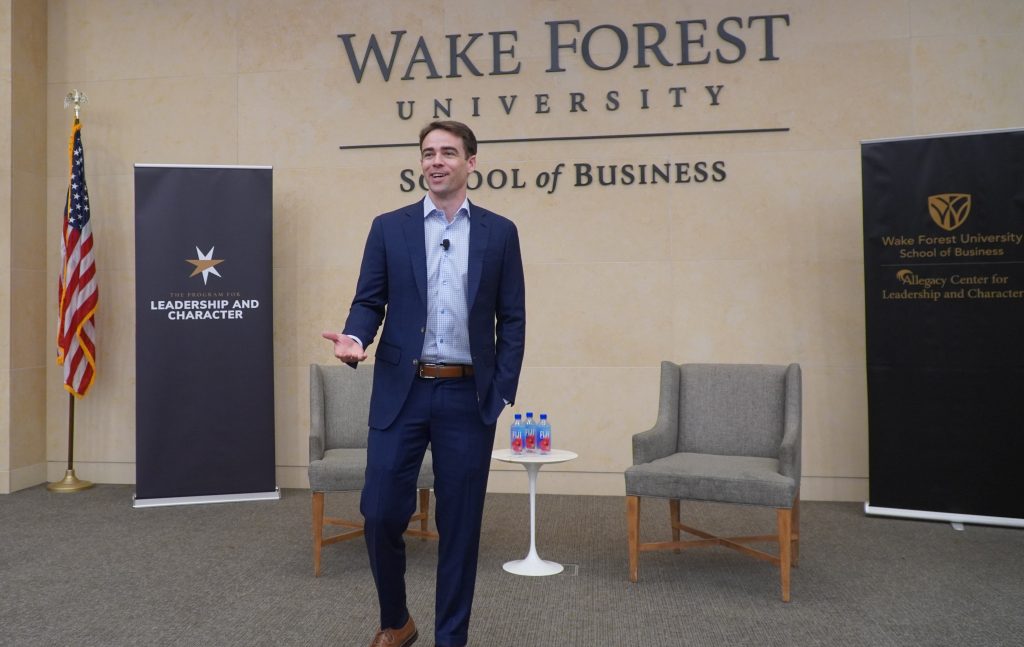During a visit to Wake Forest, the whistleblower turned entrepreneur spoke about character, core values, and his struggles as he exposed a now-famous case of fraud.
“I think ethical dilemmas are everywhere. I feel like I’m constantly faced with them,” Tyler Shultz told a capacity crowd last month at Wake Forest. “If you don’t feel like you’re faced with them, I think you’re maybe you’re just not looking hard enough.” Shultz, the Theranos whistleblower, spoke to a standing-room-only crowd of almost 500 at the Broyhill Auditorium in Farrell Hall. During an hour-long conversation on September 22, Shultz talked about what it was like to be at the center of a major ethical controversy as he uncovered duplicity and fraud at Theranos, the biotech company whose founder Elizabeth Holmes claimed their technology could run hundreds of tests on a single drop of blood. Despite family pressure, legal threats, and being followed by private investigators hired by Theranos, Shultz—then 22 years old—played a pivotal role in exposing one of the most significant corporate frauds in Silicon Valley history. During the conversation with Michael Lamb, Senior Executive Director of the Program for Leadership and Character, Shultz reflected on his experiences, the leadership lessons he learned, and the role of character and moral courage in doing the right thing—even when it’s hard. “If something feels wrong, it probably is,” he said. That’s what led him to look deeper and ultimately expose a fraud that sent Holmes and another executive to prison for more than a decade.

Shultz also talked about how he stayed true to his character. Part of it involves writing down his core values. Before meetings. Before his day begins. Before he makes a decision. “That’s part of why I think they’ve become really ingrained,” he said. Shultz’s most important values? Family, authenticity, and curiosity. Jotting them down is a “small exercise that I think people can do. And then when you feel like those are being compromised somehow—whether it’s a work situation, maybe a situation with friends, situation with the professor—you can ask yourself if what I’m being asked to do compromises these values. Then do something about it and flex that ethical muscle.”
Shultz also engaged students at lunch, met with faculty and university leaders at dinner, and spoke in Peter Brockway’s Private Equity class in the School of Business. Several classes in the School of Business and Center for Entrepreneurship discussed the Theranos case with their students.
The visit was sponsored by our Program and the Allegacy Center for Leadership and Character at the Wake Forest School of Business.
